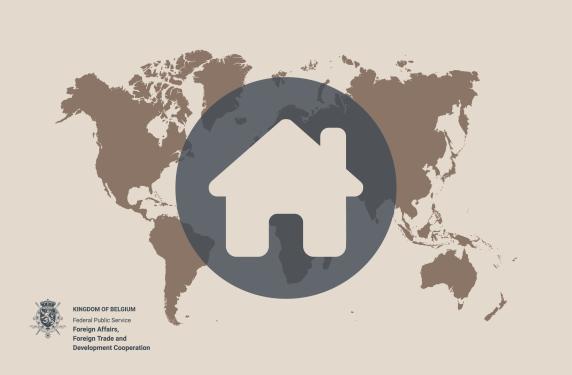-
Last updated on
Belgian embassies and career consulates deliver electronic identity cards to Belgians registered in their consular population registers:
- eID: electronic identity card for adults and children over 12 years old
- Kids-ID: electronic identity card for children under 12 since October 1, 2015
Do not confuse Belgian identity card, Belgian passport and residence permit from your country of residence.
Note the difference between Belgian identity cards and residence documents, which may be issued by the country of residence. The validity and legal nature of these residence documents are generally limited to the territory of the country of residence.
The eID and Kids-ID are valid identity and travel documents for the member states of the European Union. More information
1. Submit your request:
- To apply for an eID at the consular post, use the following form
French form (PDF, 114.41 KB)
Dutch form (PDF, 100.68 KB)
For children under 11 years and 9 months, use:
French form (PDF, 133.24 KB)
Dutch form (PDF, 130.14 KB)
Please note that parents of children under 12 must present themselves with the minor on the day of the appointment. Children between 12 and 18 can sign and introduce their signatures themselves.
- Payment must be provided on the day of appointment:
For adults and children from the age of 11 years and 9 months: 15 JOD (To be paid with bank card)
For children under 11 years and 9 months: 7.50 JOD (To be paid with bank card)
- Attach an identity photo that complies with the standards indicated on the website of the FPS Internal Affairs
- To book an appointment, click here
2. The "Allo Parents" function
Kids-ID has a telephone number (+32 78 150 350), accessible 24/7.
If the child is lost and has their Kids ID, anyone who finds them can easily contact their parents or trusted people through a parent-activated cascading call system.
To activate this cascade system or for more information, please consult: www.alloparents.be
3. How long is the validity of an eID?
The validity period depends on your age at the time of the request:
|
Age at time of application |
Validity of the eID |
|
Between 12 and 18 years old |
6 years |
The eID remains valid:
- in the event of a move (to another post or to Belgium)
- if it was obtained in a municipality in Belgium and the holder has notified his municipal administration about his move abroad.
The eID is no longer valid:
- if it is reported lost or stolen
- if the photo no longer looks like the holder
- if it was obtained in a municipality in Belgium and the holder has not reported his move abroad to his municipal administration.
4. How long is the validity of a Kids-ID?
A Kids-ID is valid for 3 years, even if you move (to another post or to Belgium).
It is no longer valid:
- if it is reported lost or stolen.
- if the photo no longer looks like the child.
5. Activation of eID cards
Any Belgian citizen registered in the population registers of a Belgian Embassy or Consulate can also activate their eID at their consular post, another consular post or a municipality in Belgium. Cards and certificates can only be activated in the presence of the citizen. This also means that an eID of a minor between 12 and 18 years old can only be activated in the presence of that minor. To do this, citizens must have their identity card and their PUK code. Activation of the card and certificates allows citizens to identify themselves and connect to official Belgian websites.
6. Kids-ID activation
Any Belgian citizen registered in the population registers of an Embassy or a Belgian career consulate and having a Belgian child registered in the consular registers can also activate the Kids-ID of his child at a consular post or a municipality in Belgium. In the case of Kids-ID, the card can be activated by the parents (or the legal representative) without the child or children being present.
